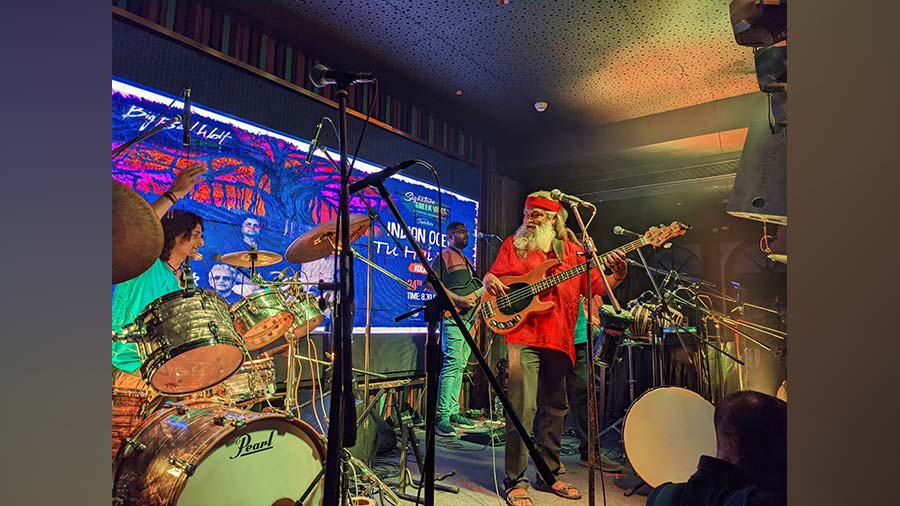Indian Ocean, the pioneer of rock in India, performed at Kolkata’s Hard Rock Cafe on Saturday, June 24, as part of their Tu hai Tour during World Music Week. Tu hai happens to be their latest six-track album. Known and loved for their spirited live performances, the band had previously shared the stage with Usha Uthup (accompanied by her daughter and granddaughter) in 2018 at Hard Rock Cafe’s inauguration gig.
The band’s USP lies in their seamless fusion of traditional Indian instruments with contemporary rock elements, skillfully intertwining rock, Indian classical and folk with precision and finesse.
Each band member contributes their own expertise, forming a cohesive lineup comprising Himanshu Joshi (lead vocals), Tuheen Chakravorty (tabla, percussions), Amit Kilam (drums, percussions, vocals), Nikhil Rao (guitars), and Rahul Ram (bass, vocals). Together, they craft a sonic landscape that exudes innovation while remaining deeply rooted in their long-surviving distinct sound. It would be incomplete to dissociate their music from the profound socio-economic and political issues that it encapsulates.
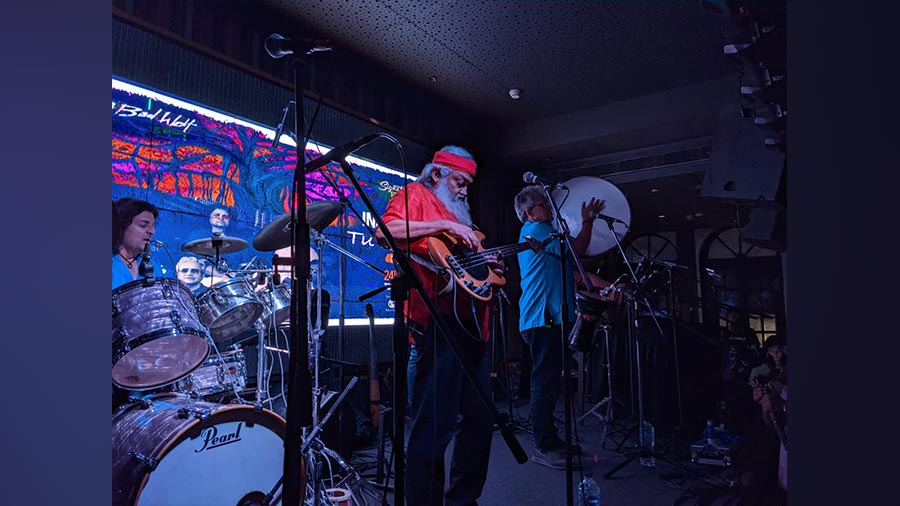
The packed venue pulsated with energy as Indian Ocean effortlessly shifted gears between soul-stirring ballads and high-energy anthems
Indian Ocean’s electrifying concerts are an incredible blend of showmanship and musicianship, offering an immersive experience as their music transcends boundaries and takes on a vibrant life of its own. Despite their seasoned years, the band is a juggernaut on stage, defying age.
The packed venue pulsated with energy as Indian Ocean effortlessly shifted gears between soul-stirring ballads and high-energy anthems. The crowd was enthralled, responding with enthusiastic applause and cheers, and many couldn’t resist dancing to the infectious beats.
In addition to performing their iconic hits like Bandey and Man Kasturi Re, they treated the audience to Tu Hai, a thought-provoking exploration of the existence of God, as well as Jhini Re Jhini, inspired by the timeless verses of Kabir. Closing their act with Kandisa, which was an ode to a Syrian-Christian Aramaic hymn, Indian Ocean left the audience yearning for an encore.
The band even presented a heartfelt rendition of their song Kyun from the film Chakki, as a tribute to KK, who originally sang it.
Like a vivid metaphor unfolding on stage, Rahul Ram’s flamboyance, characterised by countless jumps and an expressive face resembled that of a five-year-old relentlessly flying a kite on a balmy summer afternoon.
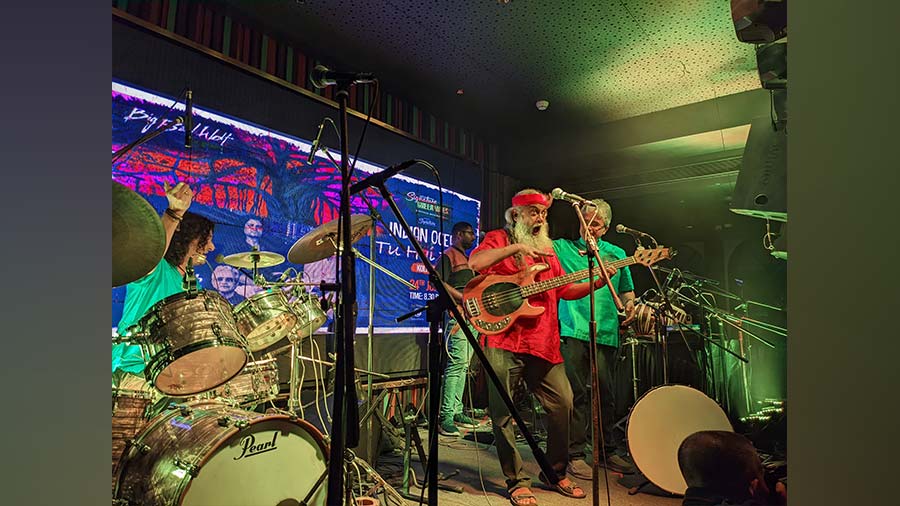
“Collaboration is a key aspect of our music-making process, and it’s rare for someone to come up with an entire song on their own. However, there have been a few exceptions. For instance, in the song Man Kasturi Re from the film Masaan, Amit created most of the vocal parts while waiting at a traffic signal. When he brought the tune to the studio, we were all amazed by it. Typically, when someone comes up with a lead line, a hook, a vocal melody, or a rhythm pattern, we all gather and start jamming together. We blend all these individual components, drawing inspiration from various sources, and continuously refine the ideas. We experiment with different musical tools and techniques, constantly pushing the boundaries. Eventually, through this collaborative process, we begin to shape the structure of the song. This is how the majority of our songs come to life,” said Rahul Ram, delving into the band’s creative process.
The band’s impact on the Indian music industry doesn’t have to be overstated. After all these years, the group continues to be a paragon.
Mutual respect, synergy, and a profound belief in each other’s music form the bedrock of Indian Ocean’s tight-knit presence, as pointed out by Himanshu Joshi. The absence of ego clashes within the band cultivates an environment where their collective harmony flourishes.
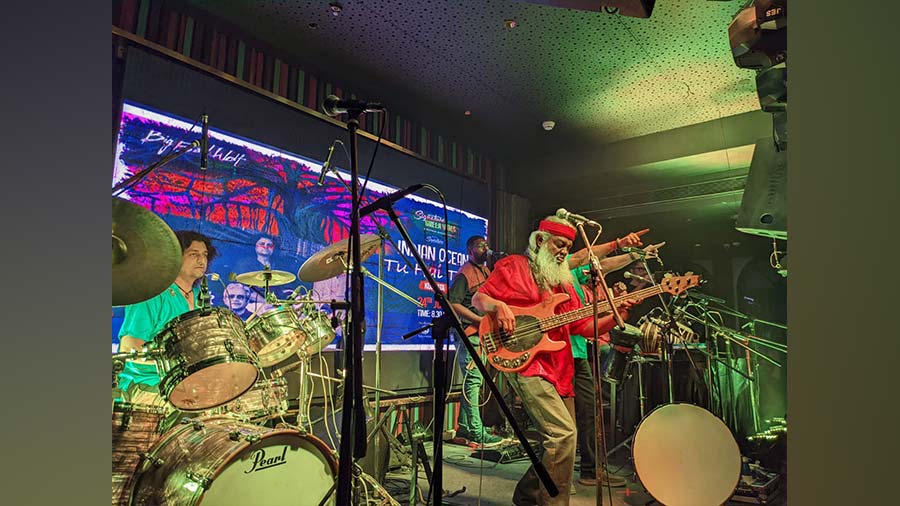
The band's new album, 'Tu Hai', resonates deeply, elevating the human spirit
“I didn't have any musical aspirations before joining the Indian Ocean. I was just a hobby musician without a defined style, sound, or artistic vision. The older members wanted someone raw and inexperienced who could learn and grow on the job as they wanted to explore new directions with a fresh perspective. I found my place and voice over time. I had ideas that were accepted quickly, some took longer, and some were even rejected. It's a collaborative process where we modify, enhance and complement each other's ideas, as Indian Ocean is not about individual names but the collective sound. That’s how we create the final product,” revealed Nikhil Rao about his role in the band.
Indian Ocean steadfastly maintains its musical integrity, eschewing the fleeting trends of a reel-obsessed world. The new album resonates deeply, elevating the human spirit. The band is dedicated to crafting timeless music, with the aspiration that future generations will eventually rediscover the enchanting essence encapsulated within their tracks.
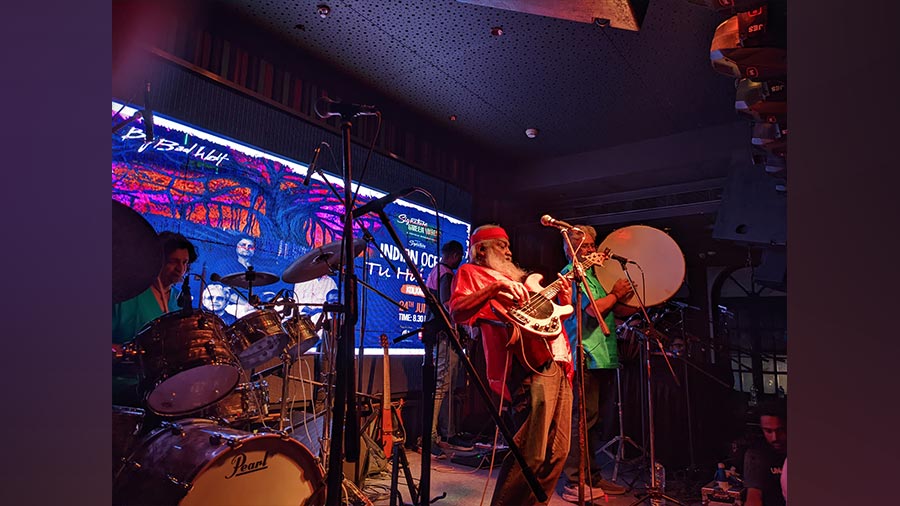
This time, too, Indian Ocean managed to sustain its position at the apex
“Playing with multiple bands and musicians can enhance your practice, but it may hinder your ability to focus on a specific genre or establish a unique sound, as time and effort gets divided among various projects and styles. Joining different bands for income is a common path, given the availability of venues hosting bands on different days. While it may provide financial stability, it gets challenging to excel. Committing to one musical endeavour enables self-introspection and a deeper connection with your own music. Engaging in multiple commitments may dilute your individual style, which is why I’m cautious about this approach. However, it offers valuable practice to refine your craft, even if a cohesive musical identity may not emerge,” said Amit Kilam, reflecting on the current indie music scene.
A true testament to a band’s triumph is when the audience sings along to their songs. In the case of Indian Ocean, their passionate fan base was already familiar with the latest gem in their discography, Tu Hai. As far as rock in India goes, with this release, Indian Ocean has arguably outdone itself and sustained its position at the apex. As their name suggests, Indian Ocean had indeed submerged their audience in the vast expanse of their musical prowess.
